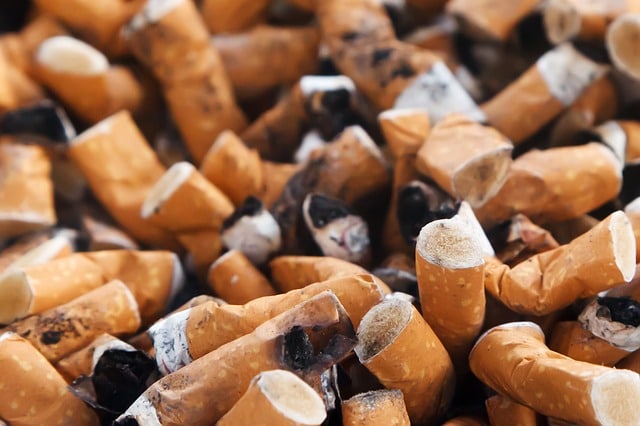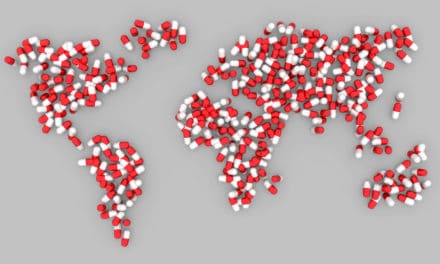
Trials with psilocybin mushrooms have helped long-term smokers beat their addiction.
We’ve come a long way from doctors endorsing cigarettes and authority figures saying that nicotine is perfectly safe, but even in this day and age when we know that tobacco is the single leading cause of preventable death,[1. CDC Tobacco Fact Sheet: https://www.cdc.gov/tobacco/data_statistics/fact_sheets/fast_facts/] millions of people still smoke and many of them are struggling to quit. Finding ways to help people who are physically and psychologically addicted to smoking is hugely important for public health, and recent scientific trials are showing that the brightest ray of hope for tobacco addicts lies in an unlikely source- hallucinogenic mushrooms.
Trials using psilocybin mushrooms have helped long-term smokers understand the roots of their addiction, tracing inside themselves not just the physical craving, but a deeper knowledge of the mental symptoms that lead to their behavior. Addictions can come in many forms and for many reasons, and can be incredibly destructive. The implications of psilocybin mushrooms on addiction research could help us break through one of society’s most damaging problems.
The Johns Hopkins Study
In a study published in 2014 in the Journal of Psychopharmacology, Johns Hopkins researchers reported that using psilocybin mushrooms in tobacco addiction therapy achieved an unprecedented 80% success rate, helping 12 of 15 heavy smokers to be tobacco-free 6 months after their psychedelic treatment sessions. The participants’ smoking habits were roughly a pack a day for over three decades on average, which makes the results even more incredible. Some of the subjects had tried psychedelics before, but only minimally and in the distant past.
The results of the Johns Hopkins study are particularly exciting due to the fact that the leading prescription drug for tobacco addiction treatment, varenicline, has only a 35% success rate and comes with a slew of side effects including headaches, nausea, and even of suicidal behavior. Instead of being on a regular regiment of dangerous prescription drugs like varenicline, the subjects in the psilocybin study were only administered three doses of mushrooms in a safe and supportive therapeutic environment, and the effects were long lasting. This has major implications for the future of tobacco addiction treatment and psychedelic therapy in general, as the process is far safer than using prescription drugs, and the results are exemplary.
Beyond Addiction
Psilocybin mushrooms have long been associated with mystical experiences, and while science has a hard time grasping the spiritual, these experiences can be measured. In addition to the benefits to the subjects’ ability to quit smoking and remain off tobacco for an extended period of time, 13 out of 15 (87%) reported that they would count their therapeutic experiences on psilocybin among the ten most meaningful experiences of their lives[2. “Hallucinogen in ‘magic mushrooms’ helps longtime smokers quit in Hopkins trial.” https://hub.jhu.edu/2014/09/11/magic-mushrooms-smoking ] (something that stands in stark contrast to the reports of suicidal behavior on varenicline).
As with most addictions, the substance of choice is not so much the cause of a person’s problems, but a symptom of unreleased stress, trauma, unhealthy patterns, or emotions that have not had a chance to heal and be released. Psychedelics like psilocybin mushrooms are uniquely equipped to reorient people’s perspectives on their life choices, and allow them a rare opportunity to make meaningful and lasting positive changes in how they live their lives. As Matthew Johnson of the Johns Hopkins University School of Medicine says, “Quitting smoking isn’t a simple biological reaction to psilocybin, as with other medications that directly affect nicotine receptors. When administered after careful preparation and in a therapeutic context, psilocybin can lead to deep reflection about one’s life and spark motivation to change.”
Addiction – to drugs, to cigarettes, to shopping, to work, to sex, to cutting, or to anything – can ruin a person’s life. It can harm everyone around them. The costs can be extraordinary, to both the individual and to society. As a country we spend billions every year in treatment, oftentimes after people are past the point of no return. With treatment from psilocybin mushrooms, our ability to understand and stop addiction before it becomes ruinous increases. With more research, we may be able to kick our habits.











My daughter has a traumatic brain injury from 9/14/17. She is 23 and has smoked since she was 14. She smokes cigarettes and pot now heavily. Her medical condition is stable. What are your thoughts about her taking psilocybin for the nicotine addiction and instead of heavy pot use? I hold you and your thoughts harmless. Thank you so much
Kathryn I would say go for it, and go for it together with your daughter. There are different things available like Ayahouasca however from my experience I would recommend it for person who is more advanced with psychodelics. Magic mushrooms are more gentle in general, but it might be little intense for a while. Go for it and enjoy it won’t harm you.
Any follow up on this treatment given it is over 4 years ago the article was written? Any advice on how or where to find a source for this treatment, or is it still self-administration due to the legality? I was aware that it is under consideration for modifying addictive issues, but was surprised to see it had been applied to smoking and further supports my desire to participate.
@TJ Brown
There have been many other studies conducted confirming the findings of Johns Hopkins study. Summaries, by scientists who worked on the studies, are easily available on the internet.
However, don’t expect this to become mainstream treatment anytime soon. Big pharma corporations invested large sums of money into their own lucrative ways of “dealing” with addictions. They won’t let some readily available natural products destroy their business model. Not to mention the “authorities” in the field of pharmacology, psychiatry and psychology, whose careers revolve around the mainstream treatment.